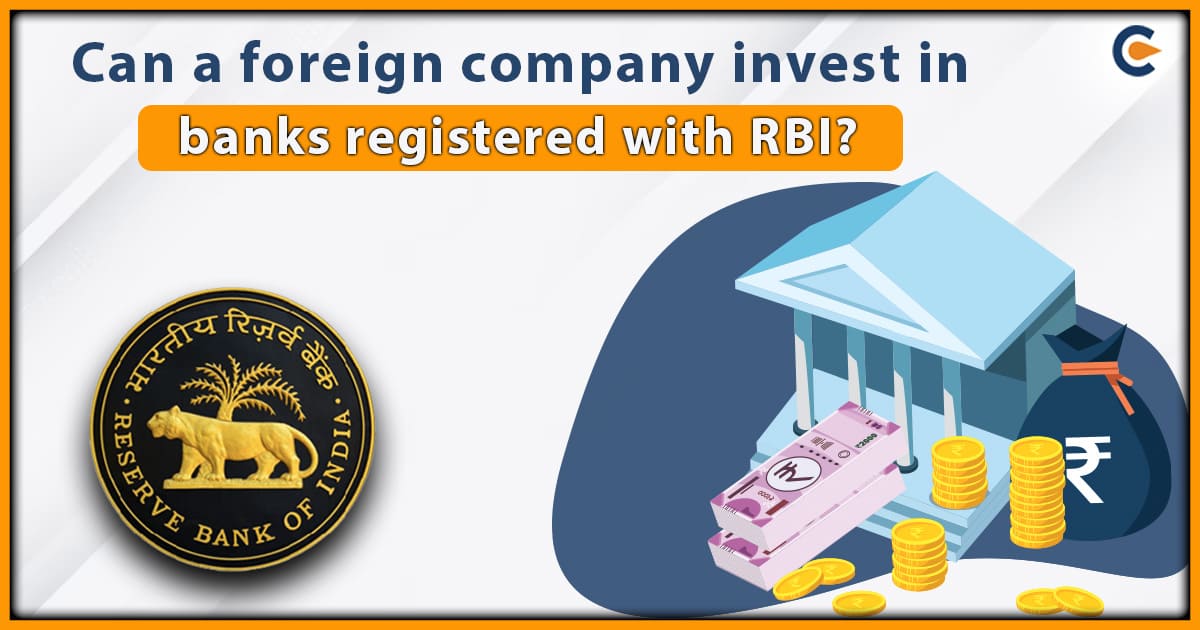The real estate sector is the fastest-growing sector in India and is among the crucial sectors of the Indian Economy. Reportedly, the Real estate sector has begun to invite large-scale foreign direct investment in India. However, from the perspective of Foreign Investment, the real estate sector has been guarded by various regulations such as FEMA and FDI policies that primarily regulate the entry of FDI in the Real Estate Sector in India. India is developing as one of the most favourable markets for entry into the Real Estate Sector.
FDI in the Real Estate Sector in India
The Government introduced the FDI in the Real Estate Sector through a notification issued by the DIPP or Department of Industrial Policy and Promotion. The department allowed 100% of Foreign Direct Investment to develop the real estate sector, such as townships, housing, commercial premises, Industries, cities, resorts etc. However, this was subject to prior approval of the Foreign Investment Promotion Board[1] or FIPB.
The following regulators govern Foreign Direct Investment in Real Estate Sector-
- The Reserve Bank of India
- The Foreign Direct Investment policies
- Foreign Exchange Management (Transfer / Issue of Security by a Person Resident Outside India) Regulations, 2000
India’s Real Estate Development Sector has observed a significant change in its functioning, supported by a rising economy, supportive demography and an advanced FDI regime. The FDI in the Real Estate Sector includes work related to township development, housing projects, and construction and development projects.
Guidelines for FDI in the Real Estate Sector in India
Foreign direct investments are subject to some guidelines, which are as mentioned follows:
1. The minimum area which must be developed under every project is as follows:
- In the case of the development of serviced housing plots, a minimum land area of 10 hectares.
- In the case of construction development projects, a minimum built-up area of 50,000 sq. mts.
- In case of a combination of the above two projects, any of the above two conditions would suffice.
2. The minimum capitalization norm shall be US$ 10 million for a wholly owned subsidiary and US$ 5 million for joint ventures with an Indian partner/s. The funds would have to be brought in within six months of the commencement of business of the company.
3. Original investment can only be repatriated after three years from the completion of minimum capitalization. However, the investor may be permitted to exit earlier with prior approval of the Government through the Foreign Investment Promotion Board (FIPB).
4. Development of at least 50% of the integrated project must be completed within five years from obtaining all statutory clearances. The investor would not be permitted to sell underdeveloped plots (underdeveloped connotes, where roads, water supply, street lighting, drainage, sewerage and other conveniences, as applicable under prescribed regulations, have yet to be made available). The investor must provide this infrastructure and obtain the completion certificate from the concerned local body/service agency before being allowed to dispose of the serviced housing plots.
5. The project must conform to the standards and norms, including requirements of land use and provision of shared facilities which are laid down in the applicable building control regulations, by-laws, rules and other regulations of the State Government / Municipal / Local Body concerned.
6. The investor shall be responsible for obtaining all necessary approvals, including those of the building plans, developing internal and other infrastructure facilities, additional charges and complying with all other requirements, as prescribed under applicable rules/bye-laws/regulations of the State Government / Municipal Bodies / Local Body concerned.
7. The State Government / Municipal / Local Body concerned, which approves the building/development plans, will monitor the developer’s compliance with the above conditions.
Scope of real estate in India
Any FDI in the Real Estate Sector can result in a series of restrictions under the rule of FEMA. Real estate was initially a restricted sector for foreign investment according to the FDI policy of 2014. The policy mentions that the “Real estate business or the construction of farmhouses is a prohibited sector” under the ambit of FDI. But these things have evolved. The FDI in the Real Estate Sector is witnessing significant growth. Investment has also increased in this sector, resulting in great profit in investments in commercial real estate. The real estate sector has always been a massive industrial sector, and it contributes around 7% of India’s GDP and is expected to reach a rate of 13% by 2025.
Technology has impacted almost every sector, including the real estate sector. Various government projects are aimed at making the FDI in the Real Estate Sector more accessible and comprehensive. The projects include “Digital India”, “Indian Chain”, and “Global Housing technology challenge”. The real estate companies have been making notes of these positive changes in the environment, which has caused a significant boost in the FDI in the Real Estate Sector.
The real estate market has also adapted technologies after the recent global pandemic, as more buyers are executing their properties on various platforms. Various changes are happening in the real estate industry, and the core remains very strong.
Conclusion
The importance of foreign investment in real estate development cannot be disputed. The ever-increasing demand for housing, commercial space, townships and infrastructure in India can be timely catered to only if foreign investment into this sector is allowed. Foreign participation will also bring quality and professionalism to how real estate development takes place in the country. The Central Government has recognized this and amended the regulations from time to time to make it convenient for foreign entry into this sector. FDI in the Real Estate Sector assumes a more significant role among the various possible routes for foreign participation in this sector because, firstly, investment through Foreign Direct Investment not only makes the foreign investor invest in the industry but also makes the foreign entity participate and monitor how the foreign funds are used; and secondly, with a ban on specific routes like External Commercial Borrowings/ Fully Currency Convertible Bonds, etc. makes Foreign Direct Investment scheme the only possible path for foreign investors to invest in this sector.
Read Our Article: Growth and Quality of FDI: Are all FDI Equal?











